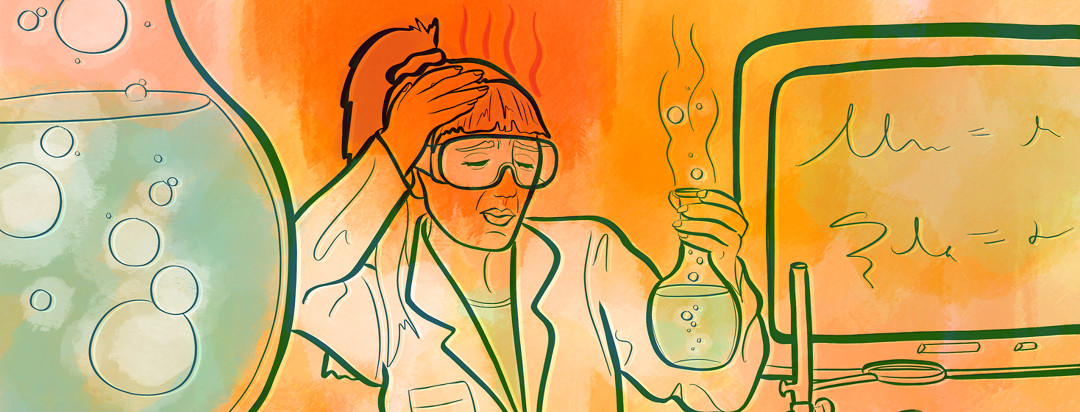The Unlikely Story of a Lucky Diagnosis, Part 1
It was the fall of 2002. I was 15 and had just started high school at a new school in my hometown of Tehran, Iran. I wanted to make new friends and have a strong academic year, but something wasn't going right.
Every morning I had to drag myself out of bed. I could barely sit up or pay attention to the classes. I was exhausted for "no reason." I wasn't used to myself being that way. I condemned myself for being lazy. My unhealthy habit of self-criticism pushed me to my limits to try harder. My family couldn't figure me out either. Everyone blamed my condition on being a typical teenager who is adjusting to a new school.
I continued to push myself until one day, I started shivering with a high fever in the middle of the Chemistry class. The girl sitting next to me leaned over to ask if I was OK. I started crying and said my entire body was in pain, and I was going to pass out. Later that afternoon, I found myself lying on the floor in our living room. My Mom was putting ice cold towels on my forehead and soaking my feet in a portable tub of cool water. Acetaminophen and cold compresses did nothing to the temperature. The shivers only got worse and my parents took me to the ER.
The lucky story of my diagnosis began
I always say the word lucky because, unlike every lupus story, my diagnosis only took 2 weeks! I owe everything to the doctor who was on call that night. He was an internal medicine specialist with a nephrology fellowship. He immediately ordered blood work and urine tests. The results came back shortly after I was admitted to the triage. The anti-fever medicine they gave me was working by then. I wasn't shivering anymore, and I could hear him talking to my parents.
"I can't tell for sure what is going on. There is a rash on her face we know as a butterfly rash, and there is a lot of protein and blood in her urine. I don't recommend taking her home. Let us admit her to the hospital to run a series of tests. Keeping her here allows us to check everything and have multiple specialists review the results to come up with a reliable diagnosis."
And just like that, I spent the next 2 weeks in the hospital.
Then came even more tests
I cannot remember how many doctors came into my room and how many blood work needles punctured my arms though I remember the two most painful tests of my life: kidney and bone marrow biopsy. I think they took the bone marrow biopsy to rule out leukemia.
In the end, when they had ruled out every possible disease, they took the kidney biopsy. Iran was under severe USA sanctions at the time, and medical equipment was not readily available. The hospital couldn't provide a kidney biopsy needle, and my Dad had to go through ridiculous channels to buy a needle from private entities at an absurd cost. They did the biopsy, and in the end, they said it was lupus nephritis.
There was an answer
The same doctor from the ER became my specialist. He came to explain my disease. The moment he said, "We think she has lupus," my Mom, Dad, and I simultaneously said, "What is that?" We were all relieved he didn't say Leukemia, but neither of us knew what Lupus is. He went on to explain how the body's immune system becomes hyperactive and attacks normal, healthy tissue, in my case, kidneys. I somehow memorized his easily understandable explanation at that moment of extreme confusion – a statement that stuck with me for the rest of my life. I have found myself using it over and over again both in my native and second language in response to every time someone asks, "What is that?"
After 2 short weeks that felt like the longest 2 weeks of my life, I was released from the hospital with an answer. An answer that meant I will be sick for the rest of my life. How was I going to adapt to living with the new notion of having a chronic illness?
Continue reading Part 2.

Join the conversation